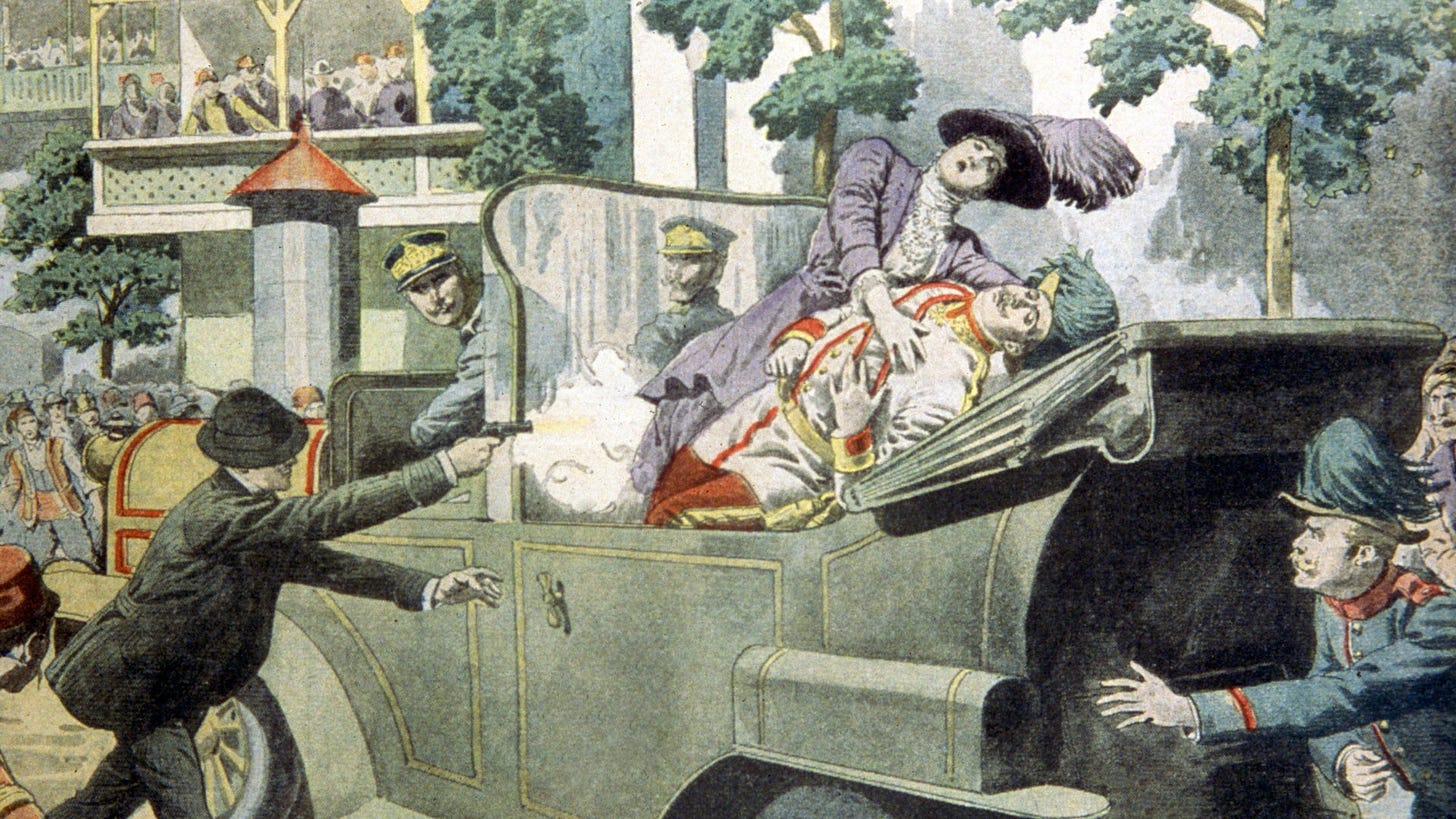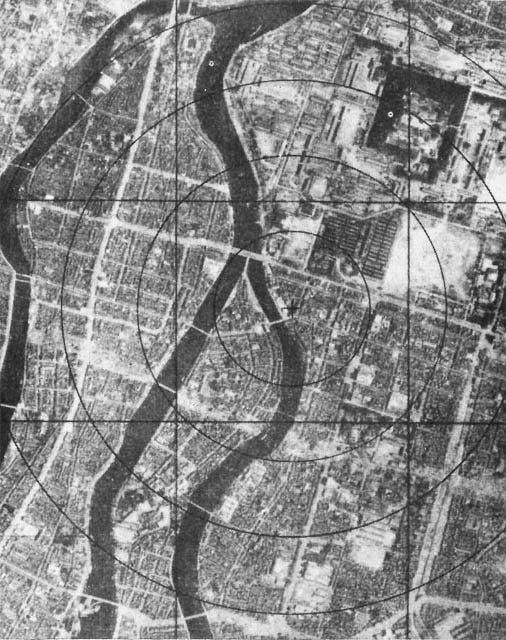Gravity's Rainbow - Part 3 - Chapter 16: A Global Nakba
Analysis of Gravity's Rainbow, Part 3 - Chapter 16: Ensign Morituri's Story, the Child Murders, Bianca in Hiding
Slothrop ascends the ladder having just left Bianca behind, realizing the atrocity that he has committed, seeing both his and her life combine in a vision to show the exploitation of the innocent and the sundial-like circularity of its recurrence. But upon ascending, he sees Ensign Morituri, the Japanese passenger who had watched the orgy occur (though did not participate) shortly after Slothrop had boarded the Anubis (3.14). This time again, he is simply watching, seemingly nonjudgmental and ostensibly not even viewing for any sort of sexual voyeurism. He states, “when I watch people, I feel less alone” and even notes that participating would make him “feel more alone” (473). Morituri is a true and pure voyeur, one who only observes; thus, he may be one of the few really ‘objective’ viewpoints who we have in the novel. He has his biases and obsessions but is aware of them. For instance, he is an anglophile though he realizes that any excessive exploration of this obsession would lead to a hatred instead of a love, so he knows his obsession is as such. Also, he is here at the whim of the Propaganda Ministry with a mission “to make the Axis look good and the other side look bad” (474). And because of his obsession with Britain (them being on the ‘other side’) he also understands that his bias toward the Axis side is based largely on both where he is from and, more importantly, who is paying him to believe in and propagate certain ideas. So, as Slothrop recalls to Morituri the odd thing which happened regarding Erdmann in Bad Karma and given Morituri himself had met Erdmann long ago in the same resort town, our objective observer begins to relate a story about what had happened there.1
His story begins. The War, all wars for that matter, begin with such velocity and impact that the events previous to them often go forgotten or rendered unimportant. We may hear that an Archduke is assassinated, but when one hears that in a history class, does anyone really believe that it is the true cause? No one is so blind to believe that an event so miniscule in the grand scheme can lead to mass death and the rising of armies across the globe, but on a sheet of paper, it is the correct answer to fill in. It is what we remember. The reality lies far beyond this: “hidden machinery” and “things we were not meant to [see]” (474).
Before WWII, Greta Erdmann failed in her goal of making it big in Hollywood. When she returned home, Rollo Groast, who (though not directly stated) was either her caretaker/psychologist or her lover, took charge of preventing her from committing suicide. Groast also worked at ARF, a research facility run by Pointsman in the White Visitation, and we saw him a number of times very briefly throughout Part 1 and 2, hanging out with other members of PISCES such as Webley Silvernail (1.12), making brief hypotheses on what led to the phenomenon of rockets dropping where Slothrop had erections (1.13), also commenting on the phenomenon of Gavin Trefoil’s skin pigmentation altering ability (1.18), and finally, after Slothrop was lost and PISCES largely dismantled, he was "assumed back into the Society for Psychical Research" (2.8) — an organization known for exploring psychic and paranormal phenomena as explanations for scientific events. So, even before the formation of the PISCES within the White Visitation, Groast was entwined in the life of a person who would one day lead Slothrop to commit his evil act. While it is not wholly important that Groast himself is the person from the organization who knew her (because we will not really be seeing him again), it does show that They had their minions out there conducting seemingly menial tasks and gathering data and intelligence so that Their plan could, when it came to acting on it, seem flawless and coincidental, at most. In reality, all of the pieces were being set in the pre-WWII era, so They only had to press play to watch it work.
When Groast could not handle Erdmann any longer (or perhaps when he had gotten the information that he needed from her), he pawned her off to Sigmund, the man we had heard about who had visited Bad Karma with her in the past (3.14). Sigmund tried any number of interventions to placate her madness, finally landing on the mud spas of Bad Karma where Morituri would also be visiting at the same time right before the start of WWII.
Morituri is, as we’ve seen, the ‘objective’ observer of events. His story also began with the anecdote about the forgotten, hidden, or unseen moments of history leading up to major events or wars. We will see that the story ends the day before September 1, 1939, the official first day WWII. Therefore, the events that occur at Bad Karma are an allegorical representation of the reality and purpose of the start of the war — the real implications for why the war was started.2
Erdmann, while staying with Sigmund in the midst of her hallucinations, began believing she was Jewish despite there being no reality behind this belief. Upon both her and Morituri travelling to Bad Karma, Morituri begins noticing news articles of dead children turning up in or near the resort town. Based on some premonition, he tails her on her nightly excursions where he notices she is dressed entirely in black, just like the woman Erdmann ran after when she and Slothrop arrived in Bad Karma a number of years later. He witnesses her attempt to kill another child, specifically a diasporic Jewish child, while claiming, "I am Israel" and "I will take you back, you fragment of smashed vessel" (478). The implication here can be taken to a literal historical event and subsequently be mapped onto a larger implication for the coming world.
Firstly, this calls to mind the rise of Israel in the post-WWII state. We see a woman who is not at all Jewish claim she is such (similar to how a leader may state false allyship) in order to justify certain actions. It is likely that this claim is largely due to her hallucinations, thus signifying that it is not that she is lying but has been brainwashed to believe she is a part of the diaspora and that she knows the way to save ‘her’ people. So, she takes real Jewish children and slaughters them. If enough were slaughtered, just as they were currently being and would continue to be in German concentration camps, there could be justification to ‘take/send them back.’ There would be the sentiment that the Jewish people were being given reparations by allowing them their own state based on what they had gone through. However, the reality is that this was just a way to exile them once again from the land in which they were not wanted under the guise of regret and apology while simultaneously eradicating another unwanted group into their own diaspora. Israel would rise as the symbol for something more: that of a global Nakba where violence or different worldly horrors could be used as justification for new exiles or genocides of the same sort. Where states could rise with the funding of men in power and could be used as systems to funnel money and weapons through. Where concentration camps could be erected on new ground and be forgiven or entirely ignored. And where genocide could be redefined and go unseen if the cause was right or if the other side ‘deserved’ it. This ‘global’ Nakba is shown when Slothrop is brought through his own turning point, changing him from an America(n) searching for answers to an America(n) actively causing these implications to occur. Thus, the true nature of why the War was begun — not because of a single invasion of a single country, not because of the outcry over the exploits of a dictator, but in order to ensure that people could be moved as cattle and slaughtered without justification as long as it served and benefitted those in power.
After this story, Slothrop wonders if Bianca can be saved. He is in a predicament where he is America (the enactor of this Fourth Reich) and an American (a watcher and sympathizer with the death of innocence). He wants to know but is aware that he himself has contributed to her downfall. If Erdmann has enacted this massacre on Jewish children, what is to stop her from continuing with others. Perhaps her punishment and exploitation of Bianca is not purely a cyclical continuance, but a purposeful evocation of this coming world. And perhaps Slothrop’s conditioning, on top of numerous other likely possibilities, was partially to reinforce this historical trajectory and ensure that it was not merely a one-off occurrence that could, as many people say, surely never be allowed to happen again.
His story over, Morituri reveals that his wife, Michiko, and their daughters all live in Hiroshima, and that he is very much looking forward to going back and seeing them. The irony is that this conversation is being had just a few weeks before the atomic bomb would be dropped on Hiroshima, likely killing Morituri’s entire family and wiping any of his or anyone’s objective observations of the war completely clean. Where there once were people like him who could view history from his objective vantage, experiencing its horrors as close to home as he would, would leave even the strongest of minds unclear.
The rain begins, and so Slothrop and Morituri go back inside the boat where Slothrop, through talking with Stefania, the captain’s wife, learns that Bianca and Thanatz have disappeared somewhere on the ship and that Erdmann has locked herself in a room going crazy with grief at the thought that Slothrop has killed her daughter.3 He is told that to pay for his trip, he must go make things right with Erdmann. So, he goes to her, is accused of being one of Them, denies this fact, and tells her that he knows where Bianca is. That she is hiding by herself, as she promised the both of them would do if Slothrop would only save her.
Up Next: Part 3, Chapter 17
And if you recall, I mentioned that it was important to remember Slothrop and Erdmann’s arrival in Bad Karma for a few reasons:
It was Slothrop’s waypoint/port from being a passive observer to an active participant in the Zone.
It was a place where Erdmann is haunted for something she did long ago (this will be the main point of Ensign Morituri’s Story).
Slothrop still has yet to discover where she fled off to when they were in Bad Karma together.
Similarly, this gives a basis for what Slothrop’s entrance into Bad Karma also represents, thus signifying Bad Karma as a marker of historical turning points.
Also, as a side note, this part has my favorite dumb joke where Slothrop gets kicked by the one person on the boat who speaks Low Pomeranian. No idea why I love this one so much, but it always makes me laugh out loud.







